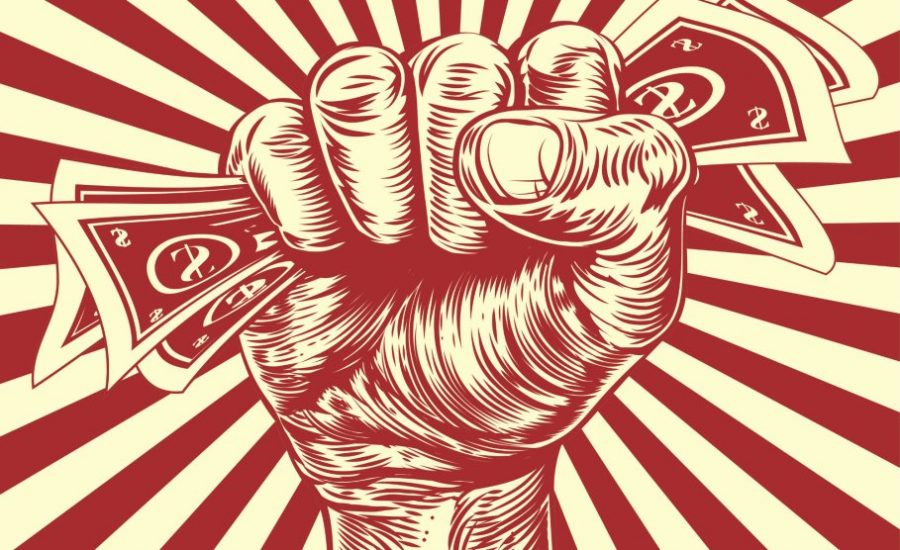Pay the Price
Raising the minimum wage could adversely affect the cost of living -- Staff Editorial
Around the country, workers are striking against their employers, demanding higher wages. In 1938, the Fair Labor Standards Act set the first U.S. minimum wage President Franklin D. Roosevelt passed it to protect workers during the Great Depression. Economic unease caused wages for many to drop to pennies a day. Roosevelt set the minimum wage at 25 cents per hour, which is equivalent to $4.36 per hour in 2018.
Striking workers claim that the minimum wage has not been adjusted for inflation over the past years. Current minimum wage laws require employers with 26 or more employees to pay workers at least $12 an hour, and employers with 25 or less employees must pay their workers $11 an hour. However, proponents of the raise argue that this is not enough money to support workers and their families. Although the minimum wage should be enough to support the cost of living, most people do not understand the adverse effects that raising the minimum wage would have on the cost of living and the value of the dollar.
Companies and small businesses pay weekly labor costs, which are the total amount of money being paid to their employers each week. In the state of Florida, the minimum wage is $8.56, but striking workers demand that the national minimum wage be raised to $15 per hour. A business in Florida that has 10 workers working 40 hours a week on minimum wage pays $3,424 in weekly labor costs. If the minimum wage was raised to $15, those weekly labor costs would jump up to $6,000. Raising the minimum wage to $15 would cost the company $2,576 more per week. The only way for the company to continue making money and to pay their workers more would be to raise the prices of goods and services. When the prices of goods and services go up, so does the cost of living, meaning that raising the minimum wage would, in turn, raise the cost of living.
But what does this mean? If the minimum wage was to be raised, one would not actually be making more money; instead, the value of the money made would go down. Typically, proponents of the wage raise argue that they are not making enough money to support themselves or their families, but this can easily be avoided by choosing a job that makes more money. Most people that make minimum wage have a high school education or lower, meaning that this could have easily been avoided if these workers had attended college. College tuition can cost as low as $10,000 per year, and student loans allow even the most financially challenged students to attend college, granted they have met all of the requirements.
Studies have been conducted that say increases in minimum wage lead to decreased suicide rates, but the researchers are connecting the data wrong. Increased minimum wages do not lead to decreased suicide rates; in fact, the suicide rate in the United States has risen. According to cnn.com, the suicide rate in 2017 was 33 percent higher than it was in 1999, and is now the highest it has been since World War II.
Countless states have complied with protestors, agreeing to raise their minimum wages to $15 in the next four to five years. If we can understand the consequences that this will have on the economy and cost of living, we can prevent the challenges that this will bring for familial breadwinners.

